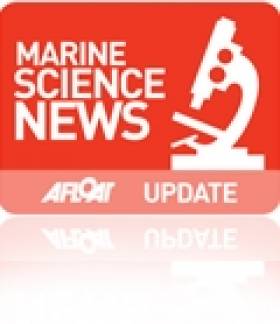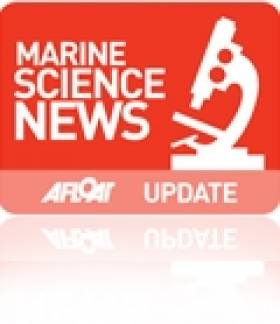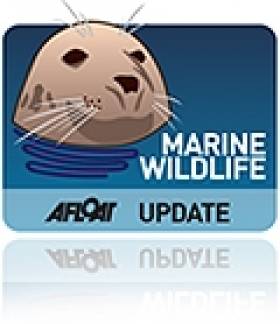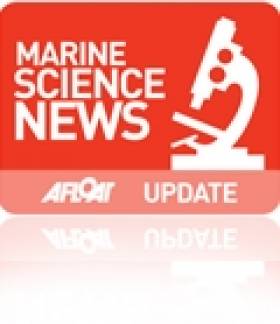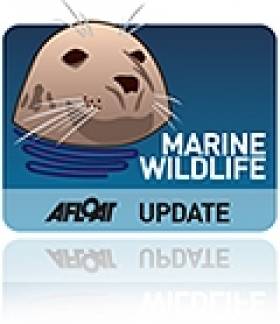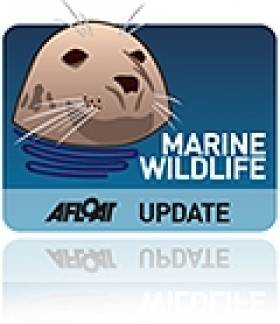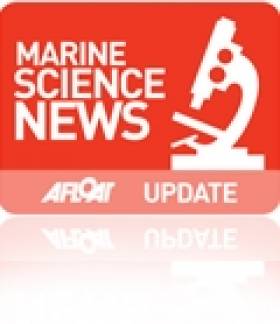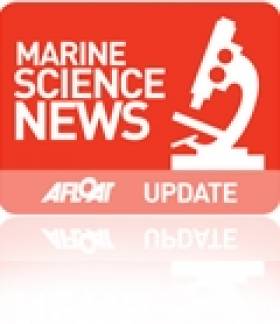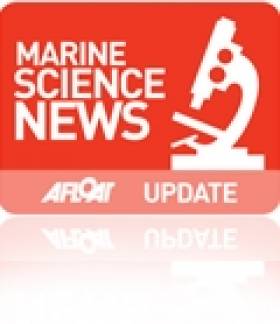Displaying items by tag: marine science
Inland Fisheries Ireland Seeks Senior Scientist
#Jobs - Inland Fisheries Ireland (IFI) is recruiting a senior scientist with a specific focus on statistics and modelling, technical editorial support, GIS and data management.
This permanent leadership role will be part of a dynamic research team conducting research (both national and international) on Ireland’s fish species and will report to the head of research and development.
Applicants will be short listed for interview on the basis of information supplied in their CVs.
For the full job description, see the IFI website HERE. For any further details contact the HR Department, Inland Fisheries Ireland, 3044 Lake Drive, Citywest Business Campus, Dublin 24 at 01 8842 662 or [email protected].
The closing date for receipt of applications is 5pm on Friday 27 February 2015. Canvassing will disqualify. IFI is an equal opportunities employer.
Major Upgrade To Scientific Equipment On RV Celtic Explorer
#MarineScience - The marine research vessel Celtic Explorer is back in the water with a new suite of hydrographic and geophysical sonar systems.
According to the Marine Institute, the new instruments were installed during an extensive refit in the A&P yard in Falmouth, which began on 29 December under the supervision of P&O Maritime (Ireland) Ltd.
The main work carried out during the refit was the installation of state-of-the-art sonar systems for bathymetric mapping in deep and shallow waters, and the installation of a deepwater sub-bottom profiler.
Adjustments were also made to the hull to fit the Kongsberg EM302 multibeam system and an IXSEA Echoes sub-bottom profiler.
These systems will enhance the seabed mapping capabilities of the Celtic Explorer, with the EM302 echo sounder designed to perform mapping with high resolution and accuracy to depths of 6km. The sub-bottom profiler can operate at the same depths to examine and profile surface bedrock layers and sediments.
The vessel's drop keel has been fitted with an EM2040 multibeam system – the same as that fitted to sister vessel the Celtic Voyager last year – to carry out high resolution seabed mapping in shallower waters. The vessel's positioning and motion reference systems were also upgraded to the highest standard to allow the vessel to operate the new equipment to the required accuracy.
The two-and-a-half-yearly refit included major mechanical work such as the removal of the rudder for inspection and repair and overhaul of the stern thruster. The entire vessel was painted; cabins, laboratories and common areas were refitted; and minor repairs carried out as well as an overhaul of essential systems.
The Celtic Explorer will complete a survey in the North Sea and Baltic Sea before beginning sea trials of the new equipment in Irish waters in February. The capability of the new equipment will be tested in the deep waters off Ireland's West coast under the supervision of scientists from the Marine Institute's Advanced Mapping Services (AMS) team.
Once the new systems have been calibrated and tested, they will be used extensively this year, including on fisheries acoustic surveys where their water column capability will be used to study the aggregation morphology and vessel avoidance behaviour of pelagic fish species, as part of a new PhD study.
The new systems will also be used to map the deep Atlantic seafloor during passage to and from Canada in April-May this year, and will be key during two deepwater ROV surveys this year, one led by University College Cork studying cold water coral reefs, and another led by University College Dublin studying deepwater thermal vent sites on the Mid-Atlantic Ridge.
The Celtic Explorer will deliver an intensive programme of activities in 2015 with a packed schedule to 17 December.
Beyond 2015, the systems will be used extensively to map the Celtic Sea, which will provide valuable data for the sustainable development of Ireland's fisheries as well as allowing Irish scientists the opportunity to play a pivotal role in future research opportunities in the deeper waters of the Atlantic Ocean.
Student Bursars Wanted For Marine Institute Work Experience Programme
#MarineScience - The Marine Institute is inviting students to apply for a number of work experience placements in many exciting areas for this summer 2015.
The bursaries are worth €2,200 each for an eight-week placement based in various locations including the Marine Institute in Oranmore, Co Galway; Newport, Co Mayo; Harcourt Street, Dublin; and ports around the country.
The Marine Institute's Bursary Programme provides valuable practical experience for students, in areas of research such as marine fisheries, salmon management, aquaculture, environment, communications, oceanography, maritime development and bio-discovery.
The bursary programme is aimed at undergraduates of universities, institutes of technology and national institutes for higher education. The Scheme is strictly limited to undergraduates who have completed two years study in a relevant discipline.
Previous bursars have gone on to work in the Marine Institute (including two directors of the institute), Bord Iascaigh Mhara, regional fisheries boards, county councils, pharmaceutical companies and State laboratories, with some going as far afield as the EPA in Sydney, Australia and some now running their own companies.
To apply for the summer bursary programme, see the list of bursary titles on offer (Word doc), select the two bursaries that interest you most (in order of preference), complete the application form (Word doc) and return it FAO Annette Jordan, Marine Institute, Furnace, Newport, Co Mayo. The deadline for applications is Friday 13 February 2015.
Secrets Of Ireland's Humpback Whales Revealed
#MarineWildlife - The mystery of where Ireland's humpback whales to go give birth remains – but two whales have been tracked between the Irish coast and feeding grounds in the Arctic for the first time.
That's the big news from a new research paper in the Journal of the Marine Biological Association of the United Kingdom, a collaborative effort between the Irish Whale and Dolphin Group (IWDG) and marine science colleagues in the United States, Iceland, Norway and the Netherlands.
According to co-author Dr Conor Ryan, the study reports on a comparison of the 28 humpback whales that have been photo IDed in Irish waters with a catalogue of over 8,000 such whales throughout the North Atlantic.
Ireland's "main stomping ground for humpbacks" was also examined in the paper, with a strong seasonal trend showing the whales appearing off the Kerry coast each summer – as tourists on the Wild Atlantic Way are becoming well aware.
IrishCentral reports on the latest BBC film shoot to capture the majestic marine mammals in their natural environment, before they move on to West Cork in autumn and further east to Waterford and Wexford as winter progresses – matching the movements of spawning sprat and herring shoals.
The IWDG website has much more on the story HERE.
SmartBay Ireland & Newfoundland Strengthen Ties In Atlantic Bridge
#MarineScience - SmartBay Ireland has entered into a transatlantic collaboration agreement with the Fisheries and Marine Institute of Memorial University of Newfoundland in St John's, Newfoundland and Labrador, Canada, Dublin City University and the Marine Institute.
The Memorandum of Understanding was signed at a reception hosted by the Canadian Embassy during a recent Canadian trade mission to Ireland. Welcoming the agreement, Dr Peter Heffernan, CEO of the Marine Institute, said: "This is a tangible example of the type of transatlantic collaboration envisaged in the Galway Statement.
"I am especially pleased to build on the strong partnerships established with our colleagues in Newfoundland and to see the exciting collaborative opportunities in sensor technology test and demonstration for our linked SmartBay initiatives."
The agreement is designed to further consolidate and develop the partnership that exists between the marine institutes of Newfoundland and Labrador and Ireland and the SmartBay infrastructures.
Glenn Blackwood, vice-president of Memorial University, said: "Since the establishment of our marine institute, we have focused on building meaningful relationships with industry partners. This MOU solidifies our commitment to further strengthen ongoing links between SmartBay Newfoundland and Labrador and SmartBay Ireland and allows for increased collaboration on the work that both jurisdictions are conducting in the ocean industry."
The key aims of the agreement are the sharing of assets, capacity and capability in a joint mission to provide access by scientists, innovators and entrepreneurs to both SmartBay test and validation infrastructures currently deployed in the North Atlantic.
Dr Fiona Regan, director of the Marine and Environmental Sensing Technology Hub (MESTECH) and SmartBay Ireland principal investigator, added: "This exciting collaboration will enable the establishment of joint projects in the area of ocean observation with our academic and industry partners from Ireland and Canada, sharing expertise and infrastructure."
These objectives will be achieved through a range of activities including: joint industry and academic research projects; outreach and education programmes; and the identification of opportunities to leverage funding for joint research projects and the expansion of collaborative arrangements to include other jurisdictions bordering the North Atlantic.
John Breslin, general manager of SmartBay Ireland, said: "We are delighted to be working with our Canadian partners to utilise the infrastructure and expertise within both SmartBay facilities to identify and develop sensor-driven decision support tools to address specific industry needs within the oil and gas, aquaculture and telecommunications sectors."
This agreement is based on a common vision and cultural appreciation of the societal and economic value of the ocean and is another step toward the utilisation of the jurisdictions' joint facilities and expertise to deliver projects of scientific and economic benefit.
Ron Newhook, director of the Marine Institute of Newfoundland and Labrador's Office of Research and Development and Randy Gillespie, director of the institute's Centre for Applied Ocean Technology were part of the recent Newfoundland and Labrador trade mission to Ireland and attended the MOU signing.
"Capturing the spirit of the Galway Declaration, this new MOU renews and strengthens transatlantic collaborations between industry, governments, academia and NGOs," said Newhook.
"Together, SmartBay Ireland and the Marine Institute's Centre for Applied Ocean Technology, which currently operates SmartBay Newfoundland and SmartAtlantic, will lead the way in the development and implementation of a sustainable observatory which will provide information to support a safe and sustainable ocean industry in the broad North Atlantic."
Whale Genes Could Hold Secret To Longer Lifespan
#MarineWildlife - The secrets to a longer lifespan could be hiding in the genes of the bowhead whale, according to a new scientific study.
Silicon Republic has news of the paper involving scientists from Dublin City University that explores the genome of the Arctic whale species, thought to be among the longest living animals on earth.
As mammals like humans, the "molecular mechanisms underlying their exceptional longevity and resistance to age-related disease are of particular interest for human health," says Dr Mary O'Connell, a contributor to the study.
Key among the findings were a set of genes distinct from the closely related but shorter-lived minke whale that are associated with repairing DNA and resistance to cancer.
The next step in this research is to see if these genes can impart resistance to ageing when adapted to different models, which could show their potential for anti-cancer therapy in humans.
Silicon Republic has more on the story HERE.
#MarineWildlife - 2014 brought us some offbeat marine wildlife stories on Afloat.ie, from a sea lion leaping onto a speedboat to nab himself a fish, to a French 'bad boy' dolphin's tour of Ireland's west coast.
We also learned that whale poo could be the key to combating climate change, and who can forget the giant 'shrimp' pulled from Florida's waters, or the surfing pig making waves in Hawaii?
But there some other weird and wonderful discoveries that we missed. Take for instance the strange mushroom-shaped 'living fossils' found in deep water off Australia over the summer, according to Discovery News.
Two species of the barnacle-like organisms were discovered by researchers from the University of Copenhagen living more than 3,000 feet below sea level, and "represent an early branch on the tree of life".
More recently, culture blog Boing Boing shares a video of conjoined Pacific gray whale calves that washed ashore in Mexico, a popular birthing ground for the species safe from their main predator, the orca.
Still, as exiting as these events are, the day-to-day work for most marine science experts is more down to earth but no less important, as marine biologist Monica McLaird gives an account of her average day's work to Lisburn Today.
#MarineScience - The Marine Institute has carried out Ireland's obligations under the Data Collection Framework (DCF) since 2002. The DCF programme involves at-sea and port sampling of catch and landings, research vessel surveys (eg acoustic, egg, groundfish and underwater TV surveys), management and analyses of data, assessment and provision of scientific advice on the sustainable exploitation of fisheries resources.
Ireland has secured funding under the EMFF (European Maritime and Fisheries Fund 2014 to 2020) to support the implementation of the new DCF and to build capacity in the areas of Regional Fisheries Management Plans; Mixed Fisheries Plans and Regional Discard Plans; in addition to discard and groundfish survey data analyses.
To support delivery of these work programmes the Marine Institute is recruiting two posts: a Team Lead (TL) focused on providing fisheries modelling and simulations support for Regional Fisheries Management Plans; Mixed Fisheries Plans and Regional Discard Plans; and a Scientific and Technical Officer (STO) to work with our Fisheries Ecosystem Advisory Services (FEAS) team to focus on the analyses of discard and groundfish survey data.
The TL will provide statistical support for staff in relation to analyses of data for peer reviewed publications as well as develop assessment methods for data limited stocks particularly monk and megrim in ICES Sub Areas VI and VII.
If you have an interest in working with the FEAS team and believe you have the skills and experience required for either of these roles, then the the Marine Institute would like to hear from you.
Further information about the opportunities can be found in the detailed job descriptions that be downloaded from www.marine.ie.
Please send a detailed letter of application and an up-to-date CV to Human Resources, Marine Institute, Rinville, Oranmore, Co Galway or email to [email protected]. Please note email applications will only be accepted at this address and applications are not valid until you have received confirmation of your application. All applications should include the reference for the relevant vacancy.
The closing date for receipt of applications is 5pm on Wednesday 21 January 2015. Late applications will not be accepted. The Marine Institute is an equal opportunities employer.
Fish Telemetry Workshop For Experts In January
#MarineScience - Inland Fisheries Ireland (IFI) and the Norwegian Institute for Nature Research (NINA) are hosting a workshop for scientists with experience in biotelemetry on 27-29 January 2015 at Citywest in Dublin.
Both agencies are promoting the workshop to provide practical knowledge for practitioners and to present and discuss the latest developments with regard to developing technologies.
The primary aim is to share and improve skill sets and knowledge, and to support development of an expert network with a view to future project collaboration.
Telemetry technology in fishing has made significant advances in recent years and progress is rapid in this field. The workshop will cover recent developments in technology and provide a platform for practitioners and leading experts to share and exchange experiences and to interact with one another.
It will also address considerations around designing, planning and delivering projects.
The main topics being covered are:
- Current telemetry technology
- Future requirements and advances in the tools available for tracking fish both in freshwater and at sea
- International networking considerations
- Practical requirements relating to design, planning, tag and receiver system selection, combining telemetry with other techniques (eg genetics) and tracking
- Data analysis toolkit – recognising behavioural patterns
- Ethical requirements
The workshop fee is €250 including lunch, a networking dinner and a workshop tour. Details on how to sign up can be found at the IFI website HERE.
Marine Institute Announces Boost For Seafood Research
#MarineScience - The Marine Institute has secured €800,000 research funding from the Department of Agriculture, Food and the Marine to carry out three significant research projects that address the needs of the aquaculture and seafood industry in the areas of shellfish health and seafood safety.
The funding was announced yesterday (Thursday 1 December) by Marine Minister Simon Coveney as part of the FIRM (Food Institutional Research Measure) competitive research funding programme, and follows the news earlier this month that Ireland's marine researchers won €5.5 million in the latest EU Horizon 2020 funding round in the areas of 'blue growth' and sustainability.
The collaborative projects, which have a total value of €1.2 million, include research partners at NUI Galway, University College Cork and University College Dublin.
The projects will address current challenges in aquaculture and aim to further enhance the health status and food safety standards of farmed Irish shellfish; and ensure compliance with food/feedstuff standards for seaweed.
Dr Peter Heffernan, chief executive of the Marine Institute, welcomed the announcement, saying these projects "will build on the work we are doing in the areas of fish health and seafood safety, together with our research partners.
"We have a strong seafood safety regime in Ireland and these research awards will help to increase our knowledge and further enhance the quality and safety of Irish seafood products."
Dr Heffernan also acknowledged two further research award recipients in NUI Galway and Dublin City University who will focus their research on sustainable aquaculture production systems and mining marine material for novel functional ingredients.
Early in the new year the Marine Institute will seek to fill the three research posts arising from these projects.




























